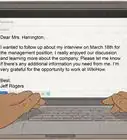This article was co-authored by Amber Rosenberg, PCC. Amber Rosenberg is a Professional Life Coach, Career Coach, and Executive Coach based in the San Francisco Bay Area. As the owner of Pacific Life Coach, she has 20+ years of coaching experience and a background in corporations, tech companies, and nonprofits. Amber trained with the Coaches Training Institute and is a member of the International Coaching Federation (ICF).
There are 9 references cited in this article, which can be found at the bottom of the page.
This article has been viewed 111,155 times.
Getting a part-time job is a great way to make extra money and gain professional experience. To hunt down a job, browse listings and visit businesses to fill out applications in person. Boost your chances of getting hired by creating a resume, and set aside time to prepare for the interview. With a little time and effort, you'll be on your way to earning your first paycheck before you know it!
Steps
Searching for Jobs
-
1Explore jobs that align with your interests and skills. Make a mental list of your interests, then think of related part-time jobs. A job that connects to one of your passions or abilities has built-in appeal, which can help you stay motivated.[1]
- For instance, if you love animals, you could apply to be a dog walker, pet sitter, or receptionist at a groomer or vet office. If you've played a particular sport for years, you could be a youth referee or umpire. You could babysit if you enjoy kids, or tutor in a subject you excel at in school.
- If you're interested in a specific career path, you could look for a related job or paid or unpaid internship in that field.
-
2Brainstorm part-time jobs commonly held by teens. Look for jobs that you're interested in, but keep in mind you still need to cast a wide net. Even if they're not your first choice, you should still consider applying for jobs such as restaurant host or server, grocery store bagger, and retail store cashier.
- You could also ask your friends about their jobs to get an idea of what type of work is available.
- You shouldn’t dread going to work, but you might need to take a job that doesn’t align with your interests if you want to earn a paycheck.
Advertisement -
3Search online for credible job postings. Visit job search sites and look for part-time listings geared toward teens. Enter relevant keywords, such as “teen,” “babysitter,” “camp counselor,” “restaurant host,” “grocery bagger,” or “cashier.” Be wary of scams that promise lots of fast cash or require applicants to pay for products or training.
- When in doubt, run a job listing by a parent or another trusted adult. Ask them whether or not they think the opportunity is legitimate.
- Bear in mind a job search is a job in itself. You may feel like you'll only need to apply for a handful of jobs, but you should apply for as many as possible.[2]
Finding Legitimate Listings: Search for the websites of businesses posting job ads. If listings include a phone number, call for more information. While some businesses post credible ads on Craigslist, you should be especially careful with listings on that platform.
-
4Stop by businesses to ask if they’re hiring. Visit stores, restaurants, and other businesses and ask to talk to a manager. Ask the manager if there are any open positions or if you can fill out an application. Remember to be enthusiastic, polite, and professional when you speak with potential employers.[3]
- Dress well, shake the manager’s hand, and make natural eye contact. It's okay if you feel nervous, but do your best to relax, have confidence, and just be yourself.
- If you fill out an application on-site, use your best handwriting, answer questions with complete sentences, and double check your grammar and spelling. You should also have your resume on hand and ask if you can leave a copy with your application.
-
5See if you know anyone who's looking for a part-time employee. Have your parents and other relatives ask their friends and coworkers about job leads or tips. You should also ask around your own social group.[4]
- A job hunt is a valuable learning opportunity. If a friend or relative is able to find you a job, you should still go through the application process as any other employee would.[5]
-
6Get a work permit and handle any other legal requirements. Depending on your location and your age, you may need to obtain a permit from your local department of labor. Look online for requirements in your nation, state, or province, or consult your school’s guidance counselor.[6]
- Additionally, make sure you're legally able to meet a job’s responsibilities. For instance, in many locations, teens under 16 aren’t allowed to climb ladders. If you're 15, a job that would require you to routinely climb a ladder wouldn’t be a good choice.
- Steer clear of employers that don’t take labor laws seriously. They don’t have their workers’ best interests in mind if they’re willing to let a teen work longer hours than permitted or perform duties that aren’t allowed.
Creating a Resume
-
1Place your name and contact info at the top. Start your resume by typing your name in a large font, such as 16 to 20 point. Beneath your name, type your phone number and, on the next line, your email address.[7]
- Your email address should sound professional, such as a combination of your name or initials and numbers. Additionally, it should be a personal account, not a school address.
- There’s no need to include a street address on a resume.
-
2Include an objective or summary statement below your contact info. For resumes with fewer experience entries, an objective or summary can explain the applicant’s goals to potential employers. Skip a line after the contact info, use the section heading “Objective Statement” or “Summary,” then include a 1 to 2-sentence statement that sums up your job goal.[8]
- For instance, your objective statement could be, “Motivated high school senior seeking an entry level retail position that would further develop my teamwork and customer relations skills.”
- Use strong action words in the objective statement and throughout the resume. For instance, describe yourself in the summary as “motivated,” “resourceful,” or “enthusiastic.” Relate how you “created,” “planned,” “assisted,” or “organized” in the experience section.
-
3Come up with concise descriptions of your experience. You might not have much professional experience, but you're not looking for a full-time salaried job with benefits. Employers understand that you may be looking for your first job. Just include a few examples that show you have a positive attitude, can follow directions and, especially for retail and hospitality jobs, can interact with customers.[9]
- Volunteer work, babysitting and other odd jobs, and school activities can all demonstrate your ability to be a dedicated employee.
- Label the section “Experience,” skip a line, and begin with you first, most recent entry. Type the organization’s name or, for odd jobs, a general title, such as “Babysitter” or “Volunteer Tutor.” Then include the dates that you held the position.
- Beneath the title, type a brief description, such as, “Collected and organized food donations and served meals at the local food pantry.”
-
4Add the education section after experience. After typing the “Education” section heading, list your school’s name, GPA (if it's above 3.0 out of 4.0), and expected year of graduation. Additionally, include any clubs, sports, or other extracurricular activities.[10]
Variation: If you're in college, put the education section before experience, especially if your degree relates to the part-time job you're seeking.
-
5Proofread your resume carefully. Errors look unprofessional and can hurt your chances of getting hired. After you've proofread your resume, ask a parent or teacher to read it and offer feedback.[11]
- It's often helpful to take a break for at least a few hours before proofreading. That way, you can double check your work with fresh eyes.
Acing Your Interview
-
1Dress professionally when you attend an interview. You don’t have to wear a fancy suit or formal dress to interview for most part-time jobs, but you shouldn’t wear a tee shirt and jeans either. A button-up shirt and dress pants or a skirt are good wardrobe choices. Completing a masculine look with a tie definitely helps, but it isn’t always absolutely necessary.
- Take the type of business into account. For instance, you should definitely wear a tie if you’re applying at a fancy restaurant or high-end retailer.
-
2Show the interviewer that you're mature, professional, and responsible. Make eye contact and shake the manager’s hand when you arrive to the interview. Speak clearly and confidently, be honest, and show enthusiasm. Additionally, maintain good posture instead of slouching or sprawling out when you sit.
Arrive on time: Showing up late is unprofessional, so make sure you know how to get to the interview in advance. If you need a ride, make arrangements beforehand, and give yourself 15 or 20 extra minutes to account for traffic, trouble parking, and other unforeseen circumstances.[12]
-
3Research the company before the interview. Whether you're applying to be a cashier or an ice cream scooper, you should learn all about your potential employer. Visit the company’s website, read the “About” page, and look for any other available information on the business.
- Find out who owns the company, when it was founded, and how it operates. For instance, if you're applying at a restaurant, learn about its menu, what dishes it’s known for, and whether it offers services like takeout or delivery.
- Researching companies before attending interviews will be especially helpful when you hunt for a full-time job. Getting into the habit now will help prepare you for your future career endeavors.
-
4Ask your parents to help you practice for the interview. Have a parent or another trusted adult pretend to be the hiring manager and role play the interview process with you. They can ask you interview questions and, if necessary, offer advice about improving your responses.[13]
- Example interview questions include, “How would you describe yourself? What are your greatest strengths and weaknesses? Why do you want this job, and what would you bring to the table?”
- Remember to come off as enthusiastic, responsible, and able to follow directions. These are the top qualities employers look for in part-time teen workers.
-
5Ask the employer questions during the interview. Use your research to come up with questions you can ask during the interview. For instance, you could ask about the training process, about the business’s history, or what the interviewer loves most about the company.[14]
- Asking about wages and time off during an interview can turn off a potential employer. That said, you shouldn’t take a job without finding out how much it pays. If the employer didn't already post the hourly rate or mention it in the interview, you should ask about it.
- Keep in mind it’s a good idea to ask questions about the company first instead of immediately asking about wages.
-
6Try to relax, be yourself, and stay positive. Finding a job can be stressful, especially if you're looking for your first job. Try not to put too much pressure on yourself. If you take the time to prepare, keep your cool, and look and act professionally, you'll be sure to ace the interview.[15]
- Remember that a job hunt is a process, and it's okay if you don't get a job right away. Do your best to be patient, stay positive, and keep applying to openings.
Expert Q&A
-
QuestionIs it good for teenagers to have two part-time jobs?
 Amber Rosenberg, PCCAmber Rosenberg is a Professional Life Coach, Career Coach, and Executive Coach based in the San Francisco Bay Area. As the owner of Pacific Life Coach, she has 20+ years of coaching experience and a background in corporations, tech companies, and nonprofits. Amber trained with the Coaches Training Institute and is a member of the International Coaching Federation (ICF).
Amber Rosenberg, PCCAmber Rosenberg is a Professional Life Coach, Career Coach, and Executive Coach based in the San Francisco Bay Area. As the owner of Pacific Life Coach, she has 20+ years of coaching experience and a background in corporations, tech companies, and nonprofits. Amber trained with the Coaches Training Institute and is a member of the International Coaching Federation (ICF).
Pacific Life Coach It depends on whether you're in school or not and if you can manage your time effectively. Just make sure that you schedule in breaks and don't push yourself too hard. Having two jobs can be stressful, so always take some time for self-care if you need it.
It depends on whether you're in school or not and if you can manage your time effectively. Just make sure that you schedule in breaks and don't push yourself too hard. Having two jobs can be stressful, so always take some time for self-care if you need it.
References
- ↑ https://www.careers.govt.nz/articles/how-to-motivate-your-teen-to-find-a-job-theyll-love/
- ↑ https://www.usnews.com/education/blogs/high-school-notes/2012/04/16/4-tips-for-helping-your-teen-land-a-summer-job
- ↑ http://youngworkers.org/questions/
- ↑ https://www.usnews.com/education/blogs/high-school-notes/2012/04/16/4-tips-for-helping-your-teen-land-a-summer-job
- ↑ https://www.fastcompany.com/3056794/six-ways-to-help-your-teenager-get-a-job
- ↑ https://kidshealth.org/en/parents/job.html
- ↑ https://www.mass.edu/gearup/documents/WritingaResume.pdf
- ↑ https://www.mass.edu/gearup/documents/WritingaResume.pdf
- ↑ https://www.forbes.com/sites/nealegodfrey/2015/04/26/preparing-your-teen-for-the-job-of-getting-a-summer-job/#3b5c6c8e166b
- ↑ https://careerwise.minnstate.edu/jobs/resumecontents.html
- ↑ https://careerwise.minnstate.edu/jobs/resumecontents.html
- ↑ https://www.forbes.com/sites/nealegodfrey/2015/04/26/preparing-your-teen-for-the-job-of-getting-a-summer-job/#3b5c6c8e166b
- ↑ https://www.forbes.com/sites/nealegodfrey/2015/04/26/preparing-your-teen-for-the-job-of-getting-a-summer-job/#3b5c6c8e166b
- ↑ https://money.usnews.com/money/personal-finance/articles/2016-06-24/how-to-prepare-your-teen-for-a-first-job
- ↑ https://www.usnews.com/education/blogs/high-school-notes/2012/04/16/4-tips-for-helping-your-teen-land-a-summer-job






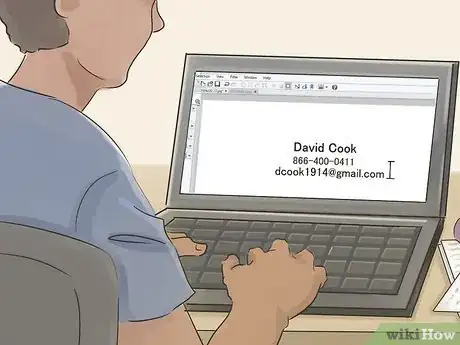
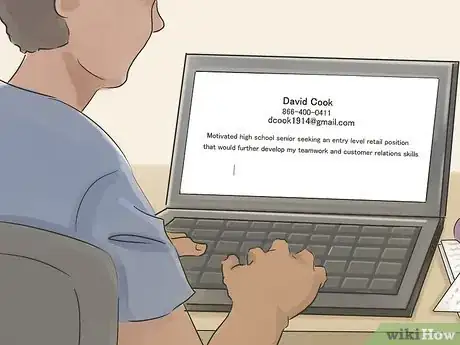
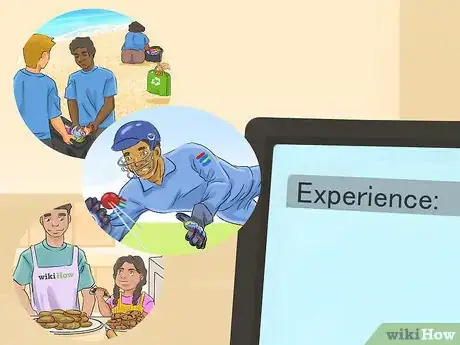










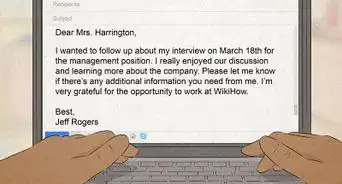
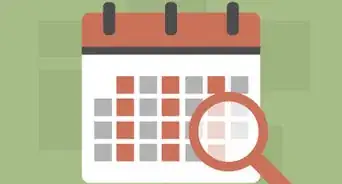



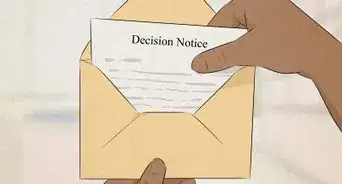
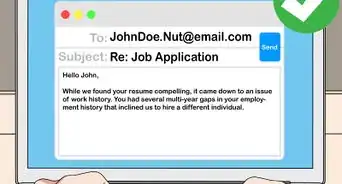



-Step-20-Version-2.webp)










